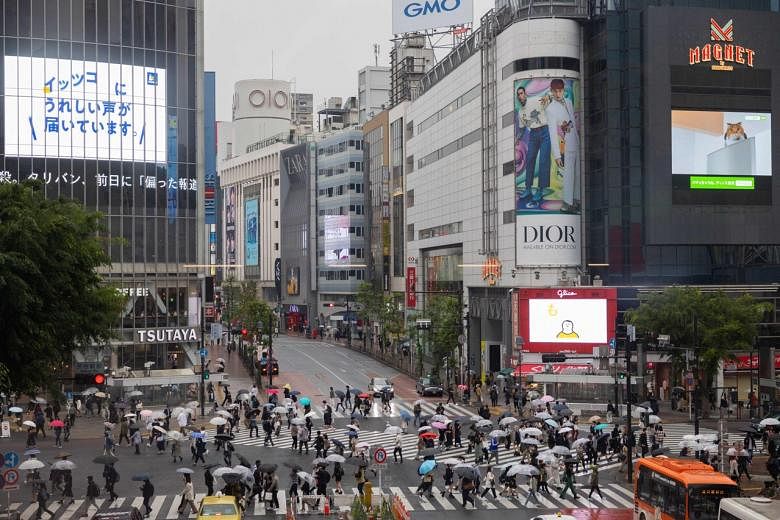TOKYO - Japan logged more than 7,000 new Covid-19 cases on Saturday (May 8) for the first time since January, with 14 prefectures setting new highs, as its worst-hit regions struggle with a shortage of manpower and hospital beds amid early signs of a lack of oxygen ventilators.
Twenty-five people have died of Covid-19 at the eldercare facility Sunny Hill in Kobe in Hyogo prefecture, out of 97 patients and 36 staff who have contracted the virus.
"People are dying one after another, with an average of three deaths a day," an employee who works with dementia patients told public broadcaster NHK.
"We have no ventilators and can only treat patients by oxygen infusion. Paramedics have tried and failed to look for hospitals, and the patients end up coming back here."
The harrowing report - with patients in Osaka also reportedly dying at home - comes as International Olympic Committee (IOC) vice-president John Coates said that while opposition was a "concern", nothing will stop the Games from starting as planned on July 23.
Japan reported 7,249 cases on Saturday, led by 1,121 in Tokyo and 1,021 in Osaka. Among the 14 areas that rewrote new single-day highs were Aichi (575), Fukuoka (519), Hokkaido (403) and Hiroshima (181).
On Friday, Prime Minister Yoshihide Suga extended a state of emergency covering Tokyo, Osaka, Hyogo and Kyoto prefectures until May 31 from its planned expiry on May 11. Fukuoka and Aichi were added to the list.
Another eight prefectures, including Hokkaido and Okinawa, are under "quasi-emergency" measures.
Japan is grappling to contain a ferocious fourth wave driven by more contagious and deadlier mutant strains including a variant first detected in India, with unlinked cases in the community.
Workplaces, schools, daycare centres, hospitals and even the Health Ministry are clusters. Experts are now warning that avoiding the "3Cs" (closed spaces, crowded places and close-contact settings) may not be good enough.
"With the variants, there have been reported cases of people being infected without all three criteria being met, such as from close contact outdoors," Dr Atsuro Hamada of the Tokyo Medical University told the Nikkei newspaper.
Mr Suga is caught in a catch-22 dilemma with the Olympics and a general election that must be called by October.
His support is dropping with the surge in cases, yet there is no guarantee that approval will rise if infections fall with a tightening of the screws, given the wider impact on livelihoods and the economy.
The emergency extension on Friday kept in place measures that ask restaurants and bars to stop all-day alcohol sales and halt dine-in service by 8pm. But it also relaxed some restrictions by allowing big leisure venues and shopping malls to reopen.

A recent Japanese study said that 30 per cent of asymptomatic patients may carry a high virus load and be infectious. Another study said about 10 per cent commute to work or school even if they have symptoms that are associated with Covid-19, albeit the lighter ones.
At the same time, unused doses have been piling up as vaccinations progress at a snail's pace, though Mr Suga has aimed for a million doses a day with the launch of mass inoculation centres.
To allay public opposition over the Games, Japan has struck an agreement with the IOC for athletes to be given priority vaccinations.
That has hit a raw nerve. Japanese athletes like long-distance runner Hitomi Niiya said on Saturday she felt uncomfortable with jumping the queue ahead of the elderly.
"It's very disappointing that athletes appear to be given special treatment," she said. "Every life must be protected equally."


